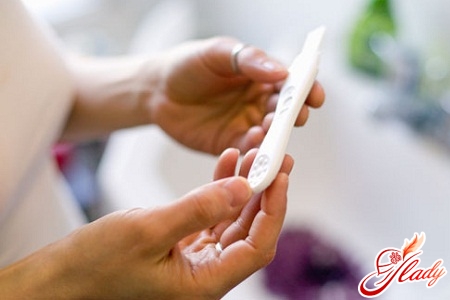 In most cases, the expectant mother carefullyis preparing for pregnancy, trying to find out as much information as possible. And therefore, of course, such a concept as basal temperature is unlikely to surprise anyone. However, let's still refresh our memory and remember once again why basal temperature changes. At all stages of the menstrual cycle, the level of certain hormones in a woman's body changes. And it is under the influence of hormones that basal temperature changes. Everyone knows that after ovulation, the normal basal temperature should not be lower than 37.2 degrees. And what should the basal temperature be during pregnancy? This is exactly what will be discussed below. In principle, very often expectant mothers do not even know that in some cases, measuring basal temperature in the early stages of pregnancy has a very important diagnostic value. They believe that pregnancy has already occurred, and therefore there is absolutely no need to measure basal temperature. But this is a dangerous misconception - an increase or decrease in basal temperature may indicate that there is a threat to the normal course of pregnancy. For example, a decrease in basal temperature can often indicate the danger of spontaneous abortion. And in some cases – even about the cessation of further development of the fetus. Of course, basal temperature should not be measured throughout the entire pregnancy, and not for all women. So who should monitor basal temperature? How long should it be measured and what can it indicate? As a rule, gynecologists recommend measuring basal temperature for those pregnant women who have previously had cases of cessation of fetal development or spontaneous termination of pregnancy. It is also necessary to very carefully measure basal temperature if doctors believe that the expectant mother is at risk of miscarriage. In this case, monitoring basal temperature can help to notice and eliminate the problem at its very beginning, thereby saving such precious time.
In most cases, the expectant mother carefullyis preparing for pregnancy, trying to find out as much information as possible. And therefore, of course, such a concept as basal temperature is unlikely to surprise anyone. However, let's still refresh our memory and remember once again why basal temperature changes. At all stages of the menstrual cycle, the level of certain hormones in a woman's body changes. And it is under the influence of hormones that basal temperature changes. Everyone knows that after ovulation, the normal basal temperature should not be lower than 37.2 degrees. And what should the basal temperature be during pregnancy? This is exactly what will be discussed below. In principle, very often expectant mothers do not even know that in some cases, measuring basal temperature in the early stages of pregnancy has a very important diagnostic value. They believe that pregnancy has already occurred, and therefore there is absolutely no need to measure basal temperature. But this is a dangerous misconception - an increase or decrease in basal temperature may indicate that there is a threat to the normal course of pregnancy. For example, a decrease in basal temperature can often indicate the danger of spontaneous abortion. And in some cases – even about the cessation of further development of the fetus. Of course, basal temperature should not be measured throughout the entire pregnancy, and not for all women. So who should monitor basal temperature? How long should it be measured and what can it indicate? As a rule, gynecologists recommend measuring basal temperature for those pregnant women who have previously had cases of cessation of fetal development or spontaneous termination of pregnancy. It is also necessary to very carefully measure basal temperature if doctors believe that the expectant mother is at risk of miscarriage. In this case, monitoring basal temperature can help to notice and eliminate the problem at its very beginning, thereby saving such precious time.
Question — answer
In this article, we have collected the most frequently asked questions and answered them. You will surely find useful information for yourself.
- Basal temperature during pregnancy before delay
One of the most pressing questions is thatwhat should be the basal temperature of a woman who is pregnant, but has not yet missed her period. As mentioned above, the basal temperature rises to 37 - 37.3 degrees in the second half of the menstrual cycle. And it decreases to 36 and 9 degrees only two days before the onset of menstruation. In the same case, if the basal temperature does not decrease for 18 days, there is a very high probability that pregnancy has occurred. Moreover, doctors advise in such cases to take a pregnancy test even if menstruation has begun. The increase in basal temperature during this period is caused by the effect of the hormone progesterone on the woman's body.
- Normal basal temperature during pregnancy
As already mentioned, the deviation of the basaltemperature from normal values can indicate various pathologies. But what is the norm and can this temperature fluctuate? Doctors call the average basal temperature, fluctuating from 37.1 to 37.3 degrees. But in some cases it can be a little higher - up to 38 degrees. This depends on the individual characteristics of the body.
- Basal temperature with ectopic pregnancy
There is an opinion that with an ectopic pregnancypregnancy, the basal temperature does not increase. However, this is not true - with an ectopic pregnancy, the same hormone progesterone is produced, which leads to an increase in basal temperature. Therefore, an increased basal temperature, alas, is not a guarantee that the pregnancy is uterine. And basal temperature should not be used as a diagnostic tool under any circumstances.
- Too high basal temperature
Despite the fact that the average basalthe temperature fluctuates within 37.2 – 37.3 degrees, its increase to 38 degrees is acceptable. But if the body temperature rises even a little higher, this should serve as an alarm signal. The cause of such an increase can be various inflammatory processes - both local and general. In any case, if the basal temperature increases, you should not try to establish the cause yourself. Firstly, you are unlikely to be able to establish a diagnosis yourself, and secondly, any treatment of a pregnant woman should be carried out under the strict supervision of a doctor. However, do not be alarmed right away - very often the cause is an incorrect measurement of the basal temperature.
What can cause a low basal temperature?
What temperature is considered low?Doctors start to sound the alarm if the basal temperature drops below 37 degrees. This may indicate quite serious complications in the normal course of pregnancy, so you should never delay in contacting a doctor. First, calm down and measure your temperature again, following all the necessary rules. Is your temperature still below 37 degrees? Calm down and wait a few hours. A one-time drop in temperature is often associated with the general condition of the body, so do not panic. Measure again in 3-4 hours. Is the thermometer still below 37 degrees? Do not delay any longer! Immediately go to see a gynecologist. After all, it is often still possible to improve the situation. If the basal temperature has dropped due to insufficient progesterone, the expectant mother will be hospitalized in the gynecological department and all necessary therapy will be immediately started. Doctors save approximately 90% of all such pregnancies – hundreds of babies are successfully born. Moreover, it is possible to save a pregnancy even if bloody spotting has already begun. In addition, to great regret, but a low basal temperature in some cases may indicate that the fetus has stopped developing. Such a phenomenon is colloquially called a frozen pregnancy. In such cases, the corpus luteum stops performing its functions, the level of progesterone in the woman's body drops sharply. And the woman's basal temperature drops. However, in some cases of a frozen pregnancy, the basal temperature may remain elevated. Therefore, basal temperature cannot be used as the only diagnostic method.
How correctly to measure basal temperature?
Very often pregnant women, worrying abouttheir babies, measure the basal temperature every few hours. And very often they get very different results - in the morning it can be 37.2 - 37.3 degrees, and during the day it can change. And very often it changes to the downside. However, doctors say that a decrease in basal temperature in the afternoon is not a pathology and should not frighten expectant mothers too much. And it is very correct to be able to measure basal temperature correctly. This is done as follows - in the evening, put the thermometer so that you can get it without getting out of bed. Immediately after waking up, lubricate the tip of the thermometer with any greasy cream - preferably regular baby cream, insert it into the anus by about 2-3 centimeters. The temperature is measured for 5 - 7 minutes. Only if all these requirements are met is the information considered reliable. In the event that you not only went to the toilet, but even just got out of bed, measuring the basal temperature no longer has any diagnostic value. There are several significant factors that can affect your basal temperature:
And finally, it is worth recalling thatBasal temperature is reliable from a diagnostic point of view for no more than the first 14 weeks of pregnancy. After that, the hormonal background of the expectant mother changes completely - and basal temperature no longer indicates anything. We sincerely wish you an easy pregnancy, a successful birth and a healthy baby. We recommend reading:









